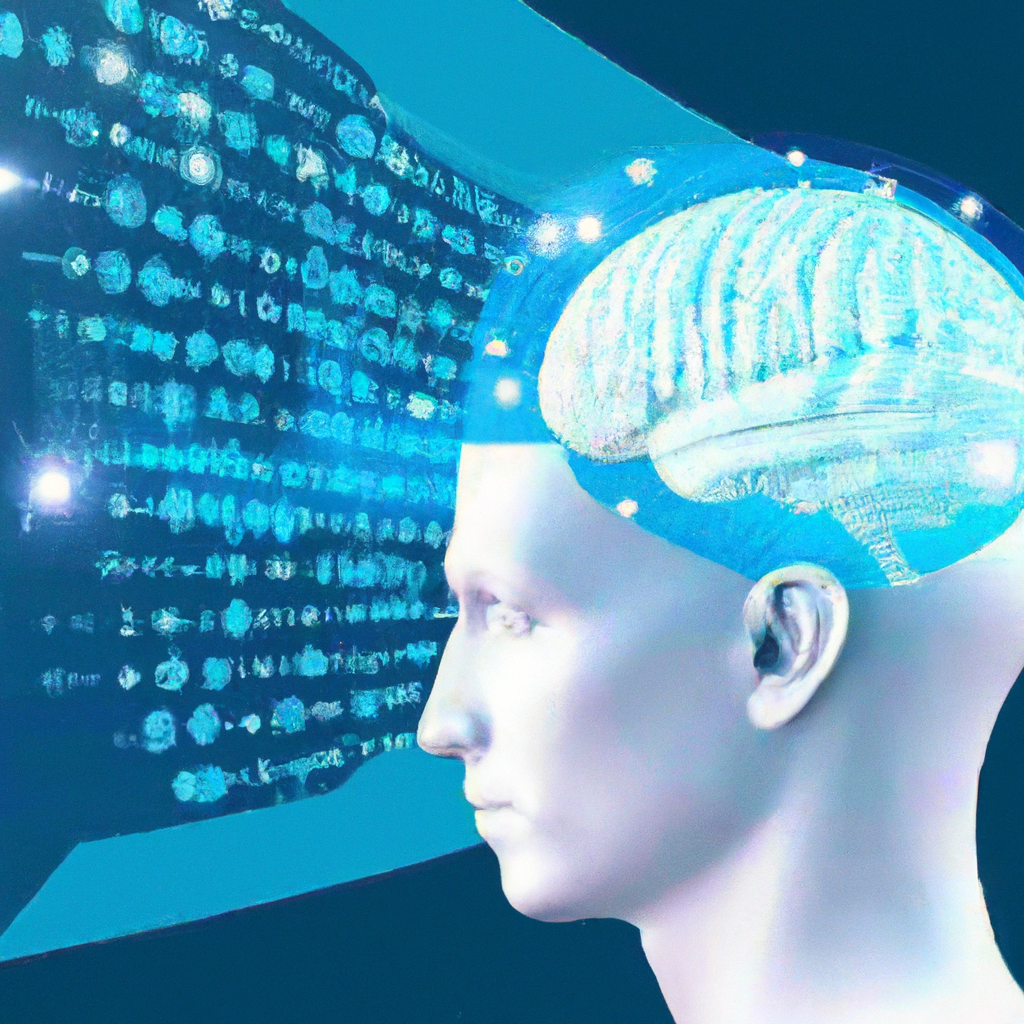10 Tips on How to Keep Up with Artificial Intelligence

Seems like every day there is a new AI something or other. Instead of being overwhelmed, learn how to keep up with artificial intelligence. Artificial Intelligence (AI) is rapidly advancing, revolutionizing industries and transforming the way we live and work. Whether you’re a tech enthusiast or simply want to stay informed about this cutting-edge technology, here are 10 valuable tips to help you keep up with AI. From following industry experts and attending conferences to exploring online resources and joining AI communities, these tips will empower you to navigate the AI landscape and stay ahead of the curve. So, let’s dive in and discover how you can easily stay informed about the incredible world of artificial intelligence!
Stay Updated on AI Trends
Artificial Intelligence (AI) is a rapidly evolving field, with new breakthroughs and developments happening all the time. To stay on top of the latest AI trends, it’s important to follow reputable AI news sources. There are several well-established publications and websites that specifically cover AI news, providing valuable insights and updates. These sources often publish articles, interviews, and opinion pieces written by industry experts who are at the forefront of AI research and development. By regularly reading these sources, you can keep yourself informed about the latest advancements, emerging technologies, and potential applications of AI.
Another effective way to stay updated on AI trends is by joining AI communities and forums. These online platforms provide a space for AI enthusiasts and professionals to connect, share ideas, ask questions, and discuss the latest trends in AI. By actively participating in these communities, you can learn from others, gain insights into different perspectives, and stay informed about the current state of AI. Additionally, participating in discussions can help you build a network of contacts in the AI field, which can be valuable for future collaborations or career opportunities.
Attending AI conferences and workshops is another excellent way to stay updated on AI trends. These events bring together experts, researchers, and practitioners from various disciplines and industries to discuss and showcase the latest advancements in AI. Conferences often feature keynote speeches, panel discussions, and presentations on groundbreaking research and real-world applications of AI. Workshops provide opportunities to gain hands-on experience and practical knowledge. By attending these events, you can not only learn from experts but also network with like-minded individuals who share your passion for AI.
Develop a Foundation in AI
If you are new to AI or want to deepen your understanding of the field, it is important to develop a solid foundation in AI concepts and principles. Taking online AI courses or tutorials is a great way to start. There are numerous reputable platforms that offer AI courses for beginners, intermediate learners, and advanced practitioners. These courses cover various topics such as machine learning, deep learning, natural language processing, and computer vision. As you progress through the courses, you will gain a deeper understanding of AI algorithms, techniques, and applications.
In addition to online courses, reading books and academic papers on AI can help you develop a comprehensive understanding of the field. Books written by AI experts provide in-depth explanations of key concepts, theories, and practical applications of AI. Academic papers, on the other hand, showcase cutting-edge research and advancements in AI. By reading a combination of books and academic papers, you can gain insights into both the theoretical foundations and the latest developments in AI.
To solidify your knowledge and skills, it is crucial to complete AI projects or assignments. Applying the concepts and techniques you have learned in a practical setting will not only reinforce your understanding but also give you hands-on experience with AI tools and technologies. Building AI projects or solving AI-related assignments will allow you to apply machine learning algorithms, work with real-world datasets, and gain practical insights into the challenges and opportunities in AI development.

Follow AI Thought Leaders
In every field, there are individuals who are considered thought leaders – experts whose insights and opinions have a significant influence on the industry as a whole. AI is no different, and there are several influential AI experts whose work and opinions shape the field. Identifying these thought leaders and following them on social media platforms like Twitter, LinkedIn, or Medium can provide you with valuable insights and perspectives on AI trends, advancements, and challenges.
Thought leaders often share their knowledge, research findings, and opinions through blogs and articles. By regularly reading their work, you can stay updated on the latest developments in AI, gain insights into their thought processes, and learn from their experiences. Additionally, following thought leaders allows you to engage with them directly by commenting on their posts, asking questions, or sharing your own ideas. This interaction can lead to interesting conversations and even networking opportunities.
It’s important to note that AI thought leaders come from diverse backgrounds and have different areas of expertise. Some may specialize in machine learning, while others focus on robotics, computer vision, or natural language processing. Following a variety of thought leaders can give you a well-rounded understanding of the different aspects of AI and help you develop a holistic perspective on the field.
Engage in Continuous Learning
In a rapidly evolving field like AI, it is crucial to embrace a mindset of continuous learning. Staying curious and seeking new information is essential to keep up with the latest advancements and trends. There are several ways to engage in continuous learning in AI.
Participating in AI-related webinars and workshops is one way to acquire new knowledge and stay updated on current topics. Webinars are online seminars or educational sessions that cover specific AI-related topics, featuring experts as speakers or presenters. These webinars often include presentations, demonstrations, and interactive Q&A sessions, allowing participants to learn from experts and ask questions. Similarly, workshops provide hands-on experience and practical insights into specific AI techniques or tools.
To identify areas for improvement and focus on them, it is important to regularly evaluate your skills and knowledge. AI is a multidisciplinary field, and there are several subfields, techniques, and tools to explore. By understanding your strengths and weaknesses, you can identify areas where you need to improve or learn new skills. Whether it’s exploring new machine learning algorithms, diving deeper into computer vision, or gaining expertise in natural language processing, focusing on specific areas of AI will help you stay relevant and enhance your career prospects.

Experiment with AI Tools and Technologies
To gain practical experience and enhance your skills in AI, it is important to experiment with AI tools and technologies. There is a wide range of AI software platforms and frameworks available that can be used for various purposes, such as developing machine learning models, analyzing data, or building AI-powered applications. Exploring and familiarizing yourself with these tools will not only give you hands-on experience but also help you understand the different capabilities and limitations of each.
Using AI-powered applications is another effective way to experiment with AI technologies. There are several applications available that utilize AI algorithms and techniques to provide various functionalities, such as natural language processing, computer vision, or recommendation systems. By using these applications, you can see AI in action, understand the potential applications, and explore how AI can solve real-world problems.
Developing your own AI projects or prototypes is perhaps the most effective way to gain practical experience and demonstrate your skills. Whether it’s solving a specific problem, analyzing a dataset, or building a proof-of-concept application, developing your own projects allows you to apply AI techniques in a real-world context. Through these projects, you will encounter challenges, learn from mistakes, and gain a deeper understanding of AI concepts, principles, and best practices.
Network with AI Professionals
Networking is an essential aspect of career development, and it holds true for the AI field as well. Building a strong professional network can open doors to new opportunities, collaborations, and knowledge sharing. There are several ways to network with AI professionals and enthusiasts.
Joining AI meetups and networking events is a great way to connect with industry professionals in your local area. These events bring together AI practitioners, researchers, and enthusiasts who share a common interest in AI. Attending meetups and networking events provides opportunities to engage in discussions, share knowledge, and exchange ideas with like-minded individuals. Additionally, these events often feature guest speakers or panel discussions, which can provide valuable insights and perspectives on the current state of AI.
Connecting with AI practitioners on social media platforms like LinkedIn can also help expand your professional network. By connecting with professionals in the AI field, you can stay updated on their work, share your own insights, and engage in meaningful conversations. Social platforms also provide opportunities to join AI-related groups or communities, allowing you to connect with a wider audience and participate in discussions on specific AI topics.
Participating in collaborative AI projects is another effective way to network with AI professionals and gain practical experience. Collaborative projects bring together individuals with different skill sets and areas of expertise to work on a common AI-related problem. By actively participating in these projects, you can not only contribute your skills and knowledge but also learn from others, build connections, and establish yourself as a valuable member of the AI community.

Stay Agile and Adapt
The field of AI is constantly evolving, with new technologies, methodologies, and frameworks being developed at a rapid pace. To stay relevant and thrive in this dynamic field, it is important to stay agile and adapt to changes.
Embracing new AI technologies and advances is crucial to staying ahead in the field. Keeping an open mind and staying updated on the latest developments will enable you to explore new possibilities and leverage emerging technologies in your work. Whether it’s incorporating cutting-edge machine learning algorithms, exploring new AI frameworks, or experimenting with novel techniques, being adaptable and open to change will set you apart in the AI landscape.
In addition to embracing new technologies, it is important to be open to new AI methodologies. AI is a multidisciplinary field, and there are various approaches and techniques for solving problems and developing AI models. Being willing to explore different methodologies and learning new techniques will broaden your skill set and allow you to tackle a wider range of problems. By staying open to different perspectives and approaches, you can become a more versatile AI practitioner.
Adapting quickly to the evolving AI landscape also means continuously updating your skills and knowledge. As AI technologies and frameworks evolve, new best practices, tools, and techniques emerge. It is crucial to stay updated on these advancements and continuously learn and acquire new skills. By investing time and effort into your professional development, you can ensure that you remain competent and relevant in the ever-changing field of AI.
Enhance Data Skills
Data is a fundamental component of AI, and having strong data skills is essential for success in the field. Learning data analysis and manipulation techniques is crucial for understanding and processing large datasets. By acquiring these skills, you can effectively preprocess and clean data, extract relevant features, and prepare data for AI modeling.
Understanding data preprocessing and cleaning is another important aspect of enhancing data skills. Real-world datasets often contain noise, missing values, or outliers, which can negatively impact AI models. Learning techniques for handling missing data, detecting outliers, and normalizing data will help ensure the quality and reliability of your data. Additionally, gaining expertise in data preprocessing and cleaning will enable you to effectively transform raw data into a format suitable for AI modeling.
Data visualization and interpretation skills are equally important for effectively communicating insights derived from AI models. Being able to visualize and interpret data allows you to gain a deeper understanding of patterns, trends, and relationships within the data. By developing expertise in data visualization, you can present your findings in a visually appealing and informative manner, making it easier for others to understand and interpret your results.

Emphasize Ethical AI
As AI continues to advance and become more integrated into various aspects of society, emphasizing the ethical considerations of AI is crucial. Staying informed about AI ethics and regulations is important for ensuring responsible and unbiased AI practices.
AI technologies have the potential to impact society in significant ways, and it is important to consider the ethical implications of these technologies. Understanding the ethical challenges posed by AI, such as privacy concerns, bias in AI algorithms, or the impact on job markets, will help you make informed decisions and develop AI solutions that are fair, transparent, and accountable.
Advocating for responsible and unbiased AI practices is another way to emphasize ethical AI. By actively promoting the use of ethical AI models and raising awareness about potential risks and challenges, you can contribute to a more responsible and inclusive AI ecosystem. Engaging in discussions, sharing your insights, and participating in initiatives focused on AI ethics will help shape the future of AI in a positive and ethical manner.
Collaborate and Share Knowledge
Collaboration and knowledge sharing are essential aspects of growth and development in the AI field. Joining AI research groups or online communities provides opportunities to collaborate with like-minded individuals, exchange ideas, and tackle challenging AI problems together.
AI research groups often bring together researchers, academics, and industry professionals who work on cutting-edge AI research projects. Joining such groups allows you to contribute your skills and expertise to collaborative projects, learn from others, and gain exposure to the latest AI research. By actively participating in research group activities, such as brainstorming sessions, project meetings, or paper discussions, you can enhance your research skills and expand your knowledge in AI.
Participating in AI-focused discussions and debates is another effective way to collaborate and share knowledge. Online platforms, such as forums or social media groups, provide spaces for AI enthusiasts and professionals to engage in meaningful discussions, ask questions, and share their insights. By actively participating in these discussions, you can learn from different perspectives, gain insights into different approaches, and exchange knowledge with a diverse community of AI practitioners.
Sharing your own AI experiences and learnings is a valuable contribution to the AI community. Whether it’s publishing a research paper, writing blog posts, or giving presentations, sharing your knowledge and experiences can inspire others, foster innovation, and contribute to the collective growth of the AI field. Additionally, by sharing your work, you can receive feedback and insights from others, which can help refine your ideas and improve your own skills and expertise.
FAQ: How to Keep up with Artificial Intelligence
How can one keep up with the latest advancements and innovations in artificial intelligence?
Artificial intelligence is a rapidly evolving field. To keep up with the latest advancements, it is advisable to follow AI-focused websites and blogs, read reputable AI and tech-related publications, join AI-focused webinars and online courses, attend AI conferences or meetups, and follow relevant profiles on social platforms like LinkedIn and Twitter.
What skills are required to understand and work with artificial intelligence?
Some fundamental skills required to understand and work with AI include a strong foundation in mathematics (particularly linear algebra, statistics, and calculus), programming skills (Python is widely used), knowledge of AI theories and applications (including machine learning, deep learning, and natural language processing), and problem-solving skills.
Are there specific academic courses to keep up with artificial intelligence?
Yes, there are numerous online platforms offering courses in AI and related fields. Websites such as Coursera, edX, and Udacity provide comprehensive courses on AI fundamentals, machine learning, deep learning, and more. Many renowned institutions like MIT and Stanford also offer similar programs.
How can businesses keep up with AI advancements?
Businesses can stay updated by employing or consulting with AI specialists, investing in AI technologies, training their workforce in AI-related skills, and attending AI conferences or webinars. They can also subscribe to industry newsletters, follow relevant AI blogs, and leverage AI-powered business intelligence tools.
Can artificial intelligence replace human jobs?
While it’s true that AI has the potential to automate some jobs, it also creates new roles that didn’t exist before. It’s better seen as a tool to augment human capabilities rather than replace them completely. Continuous learning and adapting to new technology are key to maintaining job security in the AI era.
How does artificial intelligence affect daily life?
AI affects daily life in many ways from personalized recommendations on streaming platforms, voice-enabled home assistants, real-time traffic updates, email spam filters, to predictive text on smartphones. The impact of AI is growing as technology improves.
How can children and young students keep up with AI?
Artificial intelligence education can start at a young age through modern educational toys, online coding classes, AI-focused school curriculum, and other engaging platforms designed to teach AI concepts to children and young students.
Can AI be harmful if it gets too advanced?
While AI brings many benefits, unchecked advancements could pose potential risks like invasion of privacy, biases in decision-making systems, and job displacement. It’s important to manage these risks through regulations, ethics, and transparent practices.
How important is it for companies to incorporate artificial intelligence?
Incorporating AI can make a significant impact on a company’s efficiency, decision-making, customer service, and overall competitiveness. AI enables businesses to automate processes, gain insights from data, personalize customer experience, and innovate on products/services.
What ethical considerations are involved in using artificial intelligence?
Ethical considerations in AI include ensuring transparency in AI decision-making, fairness in AI system outcomes to avoid discrimination, maintaining privacy and security of personal data, and ensuring AI applications do not cause harm to individuals or society. These concerns require active management and continuous scrutiny.
